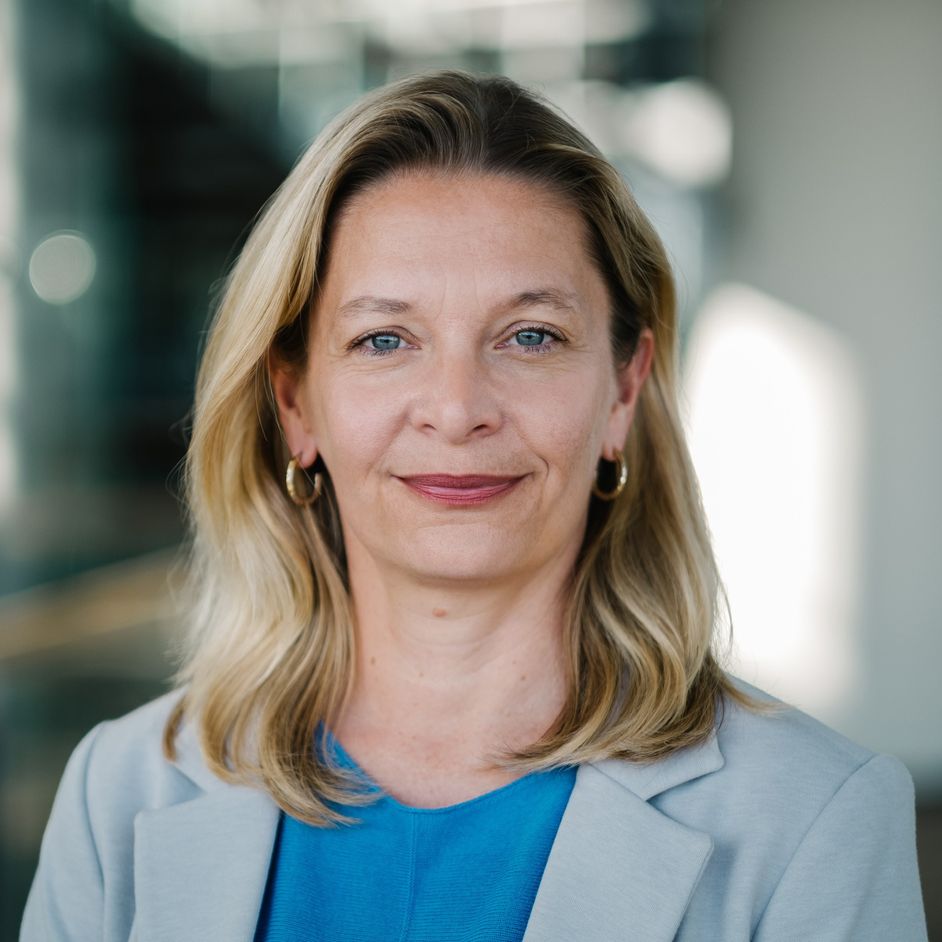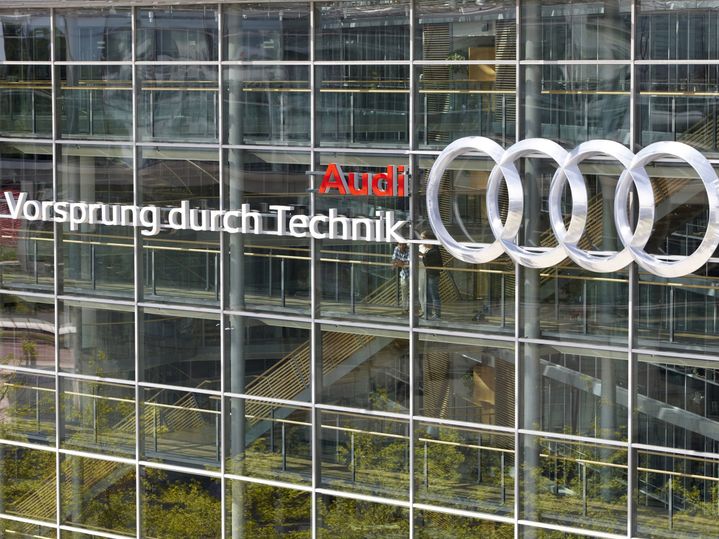ESG: A culture of integrity and responsibility at Audi

Elke Neidlein and Johanna Klewitz in conversation

Responsibility is the obligation to take ownership and bear the consequences of one’s actions. What is your view of it?
Neidlein: For me, responsibility has a great deal to do with integrity – in other words, making sure that your actual behavior corresponds with your ethical values. It is precisely when there are no concrete rules and a dilemma situation emerges that responsible decisions and a robust set of values are important. We as managers, and especially our Board of Management, have to set a good example. And we need bold Audi employees who have the courage to take action – without crossing moral or legal boundaries. For me, responsibility toward our society, the environment and our own employees means: acting with transparency and credibility and taking a stance even when it is outside of our comfort zone.

“
It is precisely when there are no concrete rules and a dilemma situation emerges that responsible decisions and a robust set of values are important.”
.jpg?imwidth=942&imdensity=1)
A majority of value creation doesn’t happen right at Audi, but through the supply chain. How do you ensure that partner companies implement the required standards for integrity and compliance?
Klewitz: Yes, that’s right. An Audi consists of many thousands of individual parts and materials and undergoes a complex manufacturing process. We can’t do it all on our own. That’s why we need reliable partner companies. We use strict criteria when selecting them. In addition to quality, innovativeness, expertise and costs, sustainability is just as important to us. We collaborate exclusively with companies that share our values and standards: Integrity, transparency and fairness are just as much a prerequisite as compliance with legal requirements. The Code of Conduct for Business Partners is a binding instrument that provides transparency as it sets minimum standards for our partner companies. We use the S-Rating (sustainability rating) to determine whether our requirements are met and whether our suppliers contribute toward sustainability, environmental and social issues. If they don’t, then we don’t work with the partner.
.jpg?imwidth=942&imdensity=1)
So there is a much stronger focus on ESG. What are you doing for that here at Audi and together with partners?
Neidlein: Integrity and compliance are part of our corporate strategy; they are anchored in our human resources processes and constantly refined through the Compliance Management System. For us, ESG means having a sound and robust corporate governance as a basis, so that the environmental and social aspects can grow. Together with my team, I ensure that our employees and managers receive support in those situations that involve the question: What does it mean to act with integrity and compliance? On the one hand, this involves mandatory and risk-based compliance training, including for topics such as anti-corruption, insider law and human rights. We also offer dialogue formats with experts and decision-makers, train people in handling dilemma situations, and teach them the relevant skills for making decisions with integrity. In addition, we raise awareness for compliance and integrity through targeted and comprehensive communication. I am convinced that training, dialogue and the critical examination of these complex issues are essential for a learning organization. It is the only way we as a company become a little better every day.
Klewitz: I couldn’t agree more with that. Broad competence development in these areas is critical. This is a huge task in our supply chain, given that we at Audi have around 14,000 direct suppliers in around 60 countries. And these are only the companies that we have a direct relationship with. We take a holistic approach in this regard. On the one hand, we train our partner companies in sustainability topics. For example, in 2021 more than 1,000 people took part in our online courses on the S-Rating. But our approach also aims to have our partner companies in the supply chain inspire each other through regular exchanges such as workshops or training courses, and for them to then take what they have learned back to their own supply chain. We bundle this collaborative approach in Act4Impact. We want to inspire change – for people and the environment.

You have mentioned activities from the social and governance areas. What are you doing for ecological sustainability?
Klewitz: Quite a lot, actually. We are gradually and continuously reducing CO2 in our supply chain. We require that our partners use green electricity, we are closing material cycles and increasing the share of secondary material in those areas where it makes a major impact – for example in aluminum.
Let’s be honest now. Is it possible to always act with integrity?
Neidlein: Of course, it is uncomfortable to hold firm, and sometimes it can mean giving up a personal advantage. Conflicting goals are the order of the day at large companies. There is great skill in aligning one’s own behavior with the big picture, the overarching good intention, and in working together to achieve it. This requires the right mindset. It includes, for example, the willingness and responsibility to question oneself and to speak up when something is not working. At the same time, it is very important to me to learn from the mistakes of the past. That is the only way a company and its culture can continue to grow, and it is ultimately reflected in the ratings. ESG pays off for everyone.
Klewitz: For me personally, it is crucial to have a stable and healthy inner compass of values. I want to feel comfortable with my decisions. That is also essential for my work in the field of sustainability. This field brings together many expectations and requirements – from regulators, to the public, to NGOs and customers to our own employees. They all want us at Audi to act in a transparent, responsible and credible manner.

What motivates you personally?
Neidlein: Integrity brings with it an enormous range of issues. There is not one way that works all the time. That’s what makes it so exciting for me to collaborate with the various departments on controversial issues. In doing so, we are not only investing in the future viability of Audi, but in a future worth living for all of us. We have made a lot of progress, but the journey is far from over. I can make my own contribution every day and lead the way with the right mindset. It doesn’t stop at the factory gate or when I shut down my laptop: acting with integrity and credibility pay off, regardless of what area of life.
Klewitz: It’s important to me not to relax until we’ve achieved a good result for people and the environment. That’s what my children teach me, too – they are the most honest reflection of my decisions and actions. All parents are probably familiar with the never-ending question of “why.” But precisely that question is good, even though it can be exhausting. It takes courage to make a change. And for me, it’s a matter of mindset: Only when we take responsibility – for our impact on people and the environment – will we continue to survive as an automaker.

